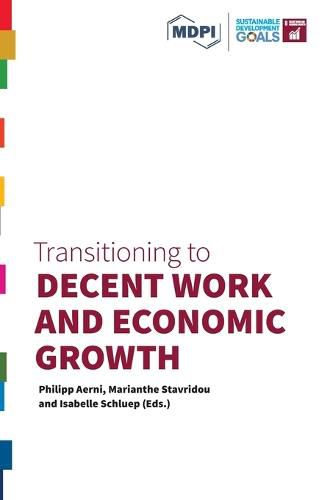Readings Newsletter
Become a Readings Member to make your shopping experience even easier.
Sign in or sign up for free!
You’re not far away from qualifying for FREE standard shipping within Australia
You’ve qualified for FREE standard shipping within Australia
The cart is loading…






This title is printed to order. This book may have been self-published. If so, we cannot guarantee the quality of the content. In the main most books will have gone through the editing process however some may not. We therefore suggest that you be aware of this before ordering this book. If in doubt check either the author or publisher’s details as we are unable to accept any returns unless they are faulty. Please contact us if you have any questions.
According to the United Nations Development Program (UNDP) and the United Nations Conference on Trade and Development (UNCTAD), the private sector plays a key role in achieving the UN Sustainable Development Goals (SDGs). After all, sustainable and inclusive economic growth is essential to enable more people to participate in global prosperity. Encouraging entrepreneurship and job creation are key to SDG 8, as are effective measures to eradicate forced labor, slavery, and human trafficking. Since more than 90 percent of jobs are created by the private sector, more attention must be paid to entrepreneurs that help create dynamic and responsible enterprises that often generate positive externalities for society and the environment through investments in scalable innovations and a commitment to local embeddedness. As such, they help lift people out of poverty through new and relatively well-paid jobs and enable local economies to become more sustainable through global value chain integration.
Transitioning to Decent Work and Economic Growth explores the prospects for SDG 8 in the Global South as well as the Global North. It especially considers the positive role the private sector may play as an enabler of human rights, creator of decent work and engine for inclusive development in different contexts. Further, it examines how the institutional environment can facilitate economic change, which may lead to social empowerment and enhanced economic opportunities. A key question the volume explores, is how-in an entrepreneurial context-innovation and scientific knowledge contribute to the creation of scalable innovation that help to de-couple economic growth from the use of natural resources.
$9.00 standard shipping within Australia
FREE standard shipping within Australia for orders over $100.00
Express & International shipping calculated at checkout
This title is printed to order. This book may have been self-published. If so, we cannot guarantee the quality of the content. In the main most books will have gone through the editing process however some may not. We therefore suggest that you be aware of this before ordering this book. If in doubt check either the author or publisher’s details as we are unable to accept any returns unless they are faulty. Please contact us if you have any questions.
According to the United Nations Development Program (UNDP) and the United Nations Conference on Trade and Development (UNCTAD), the private sector plays a key role in achieving the UN Sustainable Development Goals (SDGs). After all, sustainable and inclusive economic growth is essential to enable more people to participate in global prosperity. Encouraging entrepreneurship and job creation are key to SDG 8, as are effective measures to eradicate forced labor, slavery, and human trafficking. Since more than 90 percent of jobs are created by the private sector, more attention must be paid to entrepreneurs that help create dynamic and responsible enterprises that often generate positive externalities for society and the environment through investments in scalable innovations and a commitment to local embeddedness. As such, they help lift people out of poverty through new and relatively well-paid jobs and enable local economies to become more sustainable through global value chain integration.
Transitioning to Decent Work and Economic Growth explores the prospects for SDG 8 in the Global South as well as the Global North. It especially considers the positive role the private sector may play as an enabler of human rights, creator of decent work and engine for inclusive development in different contexts. Further, it examines how the institutional environment can facilitate economic change, which may lead to social empowerment and enhanced economic opportunities. A key question the volume explores, is how-in an entrepreneurial context-innovation and scientific knowledge contribute to the creation of scalable innovation that help to de-couple economic growth from the use of natural resources.